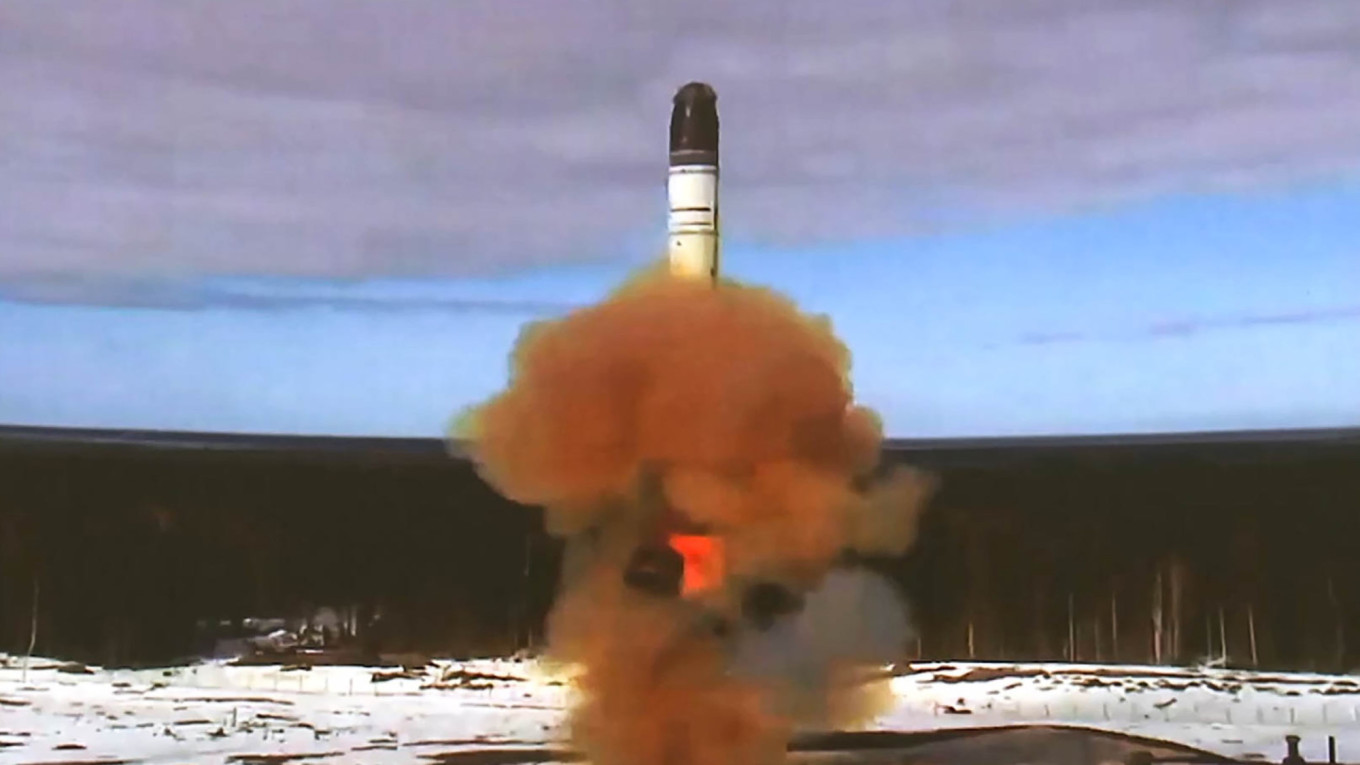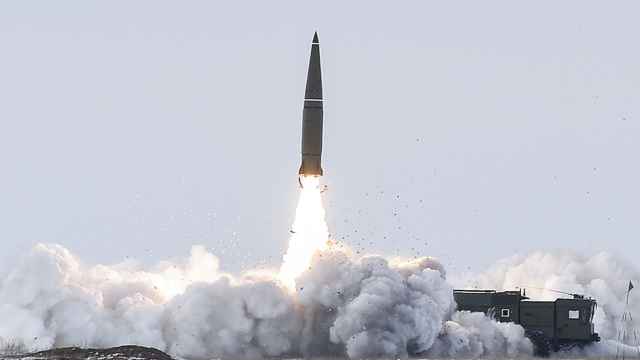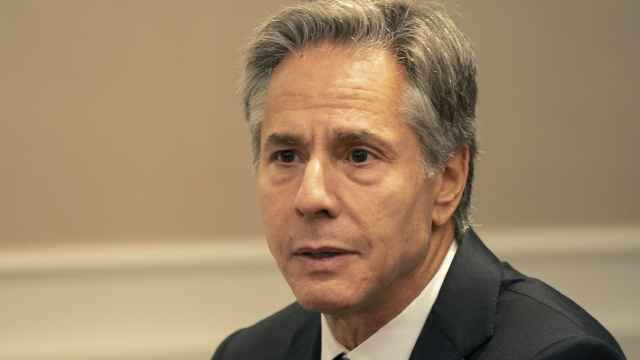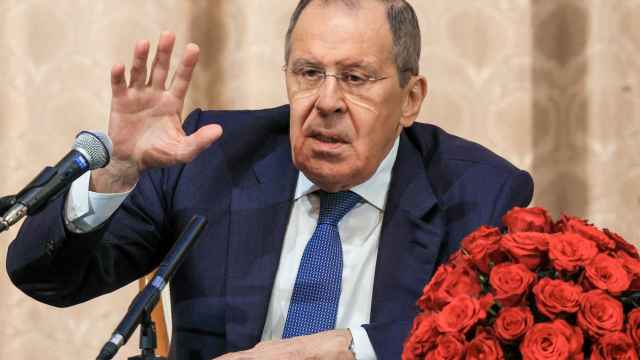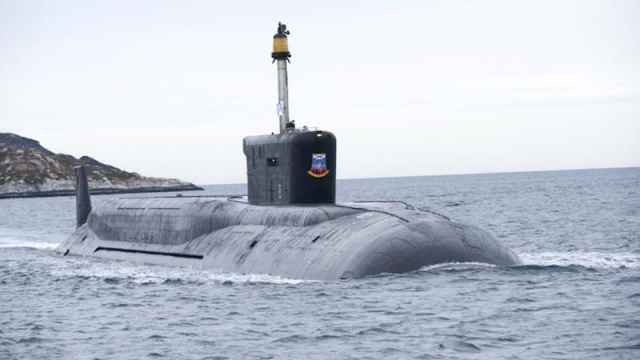Russia unsuccessfully tested its nuclear-capable “invincible” missile during President Joe Biden’s visit to Ukraine this week, CNN reported Tuesday, citing two unnamed U.S. officials.
Had it been successful, the officials said President Vladimir Putin would have touted the test at his state-of-the-nation address.
Instead, Putin announced the suspension of Russia’s participation in the last U.S.-Russian nuclear arms limitation treaty and ordered his nuclear forces to prepare for a new arms race.
Moscow had notified Washington of its Sarmat superheavy intercontinental ballistic missile test launch through deconfliction lines in advance, CNN cited one official as saying.
U.S. officials also used communication channels Sunday night when they notified Russia of Biden’s surprise visit to Kyiv hours in advance.
The U.S. did not view the Sarmat launch as an “anomaly or an escalation,” CNN reported, citing one of the officials.
The Kremlin declined to comment on CNN’s report Wednesday, forwarding queries to the Russian Defense Ministry.
The Sarmat ICBM’s last publicly known successful test came months after Russia invaded Ukraine in early 2022.
Putin, who has made veiled nuclear threats to Kyiv’s Western allies throughout the war, claimed at the time that the Sarmat would make the Kremlin’s enemies “think twice.”
Weighing in at more than 200 tons and able to transport multiple warheads, Sarmat is among Russia’s next-generation missiles that Putin has called “invincible.”
Sarmat is designed to elude anti-missile defense systems with a short initial boost phase, giving enemy surveillance systems a narrow window to track it down.
A Message from The Moscow Times:
Dear readers,
We are facing unprecedented challenges. Russia's Prosecutor General's Office has designated The Moscow Times as an "undesirable" organization, criminalizing our work and putting our staff at risk of prosecution. This follows our earlier unjust labeling as a "foreign agent."
These actions are direct attempts to silence independent journalism in Russia. The authorities claim our work "discredits the decisions of the Russian leadership." We see things differently: we strive to provide accurate, unbiased reporting on Russia.
We, the journalists of The Moscow Times, refuse to be silenced. But to continue our work, we need your help.
Your support, no matter how small, makes a world of difference. If you can, please support us monthly starting from just $2. It's quick to set up, and every contribution makes a significant impact.
By supporting The Moscow Times, you're defending open, independent journalism in the face of repression. Thank you for standing with us.
Remind me later.


